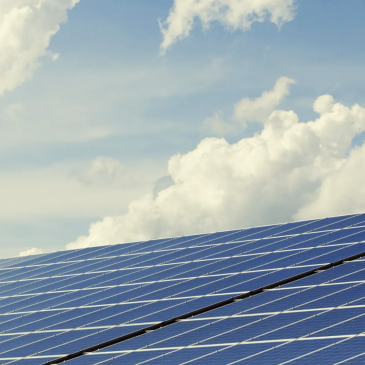The Solar Panel Installation Process
Many concerned people with an eye on their power bill and some thought for the environment are out there, considering making the switch to solar. They’re no longer hung up on solar panels being an expensive undertaking that delivers a few environmental benefits. These days, they’re thinking that solar panels are a force when it comes to saving money on electric bills and boosting a home’s overall value.
Given the tremendous benefits of solar energy, the last thing to consider is just how the process of solar panel installation will impact your life. In truth, making the switch to solar is a fairly simple process, especially when you hire qualified professional installers. In this article, we look at the steps they’ll take when turning your home into a solar-powered property.
First: The Home Gets a Thorough Checkup
Solar panel installers will want to begin by making sure the home is viable for solar panels. They’ll be checking to see if your home is south-facing, so that the roof receives as much sunshine as possible. If not, that won’t be a deal-breaker; your solar installer can propose alternate installation strategies.
They’ll also check to see that your roof is in good condition. If you need a new roof, they’ll likely ask you to address that issue before installing solar panels. To install new panels on an old roof that can’t handle it is just to ask for more problems down the road.
Second: Does Going Solar Make Sense Financially?
Making the switch to solar isn’t necessarily all about the environmental benefits – not when there are significant cost savings involved. So unless money is not a concern on any level, you’ll want to make sure going solar makes good sense for your household’s budget.
Purchasing a solar array outright can be wise if you have the finances, and you intend to stay in the home for longer than the projected break-even point. This is the best plan if you want to net the greatest overall savings. You’ll be able to take full advantage of the newly renewed federal Solar ITC, as well as any state, county, and local incentives that may be available.
But purchasing a solar array outright to convert your home to solar energy is not the only way to go. Other financing arrangements like solar leases and power purchase agreements will allow you to go solar with little to no money down. Plus, these arrays and agreements are generally transferrable to future purchasers of your home, should you move. The long-term savings won’t be as great, but you may be able to start saving quickly.
Third: Find the Best Solar Installer
The solar energy market is nothing if not competitive, and during the current pandemic, now is certainly no exception. But this means that enough people are going solar that there’s money to be made in the industry, and that’s good news for you.
With a variety of solar installers likely working in your area, it can be difficult to select one. Consider working with a local solar installer with a solid reputation, reasonable rates, extensive knowledge, and a willingness to share that knowledge with you.
Fourth: Let’s Get Started With Solar
Once you’ve assessed your home’s ability to handle solar panels, worked out the finances, and chosen the right solar installation company, it’s time to begin the process in earnest, sign a work contract, and make solar power an integral part of your home.
Technically, you could install solar panels on your own roof, but we recommend leaving the heavy lifting to a solar installation professional. By going this route, you get to be a homeowner without having to worry about getting up on the roof, learning a new process, or getting something wrong. More to the point, a professional will ensure that everything is properly connected to the grid so you can actually begin to save.
Fifth: Wait for Sun, Reap the Benefits of Solar!
Once your solar panels have been installed on your roof and you’re able to take advantage of cheap solar power, it’s time to take a moment to congratulate yourself. Going solar is a wise choice – not just for your budget, but also for the well being of future generations.

